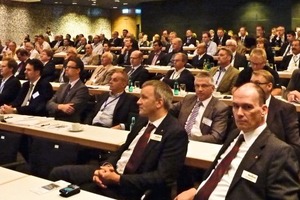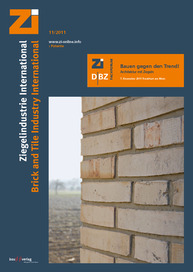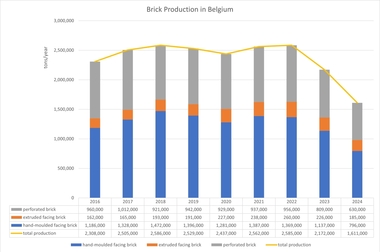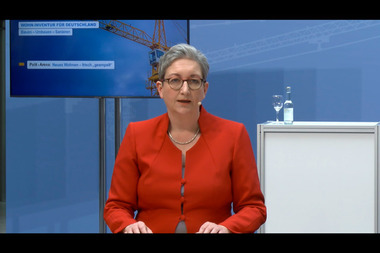Why masonry is good for the climate
contractors, planning engineers and stress analysts got together on September 22, 2011, at the Masonry Conference in Aachen to compare notes on masonry-base construction and renovation.
A professional audience of 200 from Germany and abroad gathered under the motto “Future-proof masonry construction“. Their main focus was on case histories, research findings, new materials and trends in residential construction. The convention was also centrally concerned with Germany‘s demographic challenge – and what it means for the country‘s housing economy.
Prof. Dr. Volker Eichener, an expert representing the Bochum-based Europäisches Bildungszentrum der Wohnungs- und Immobilienwirtschaft EBZ (European education centre for the real estate and housing industry), explained how the housing sector can be made more attractive again – both in the economic sense for investors and in the social sense for the communities, the individual federal “lands“ and the country as a whole. The only way to revive the new housing sector, he said, would be to reintroduce the declining balance method of depreciation. In addition, government aid should not be aligned solely with investments in modernization and refurbishment, but also with new construction.
Dr. Michael Böhmer, representing Prognos AG in Basel, reported on the results of a current Prognos study on “Macroeconomic assessment of the 2009 building energy conservation ordinance (EnEV)“. He sees the EnEV‘s current criteria as being close to economically optimal. Any further tightening of the administrative rules would at least cause investors to exercise restraint. The climate protection goals of the federal government are dependent on a significant upturn in new construction and renovation projects, and that will only be achievable through better government aid and tax incentives.
Addressing legal issues with impact on masonry, building-law specialist Prof. Dr. Klaus Kapellmann explained, in his capacity as a specialist lawyer, what needs to be considered in connection with the transition from old national to new European design standards with regard to construction codes and civil law. Introduction of the Eurocode is scheduled for mid-2012.
The essential findings of a study on “ground-up renovation vs. full replacement in the housing sector“, conducted by Arbeitsgemeinschaft für zeitgemäßes Bauen e. V. (ARGE) were presented by ARGE‘s executive secretary Dietmar Walberg. The study shows that, for some buildings, the best solution is tear them down and start over. Otherwise, the energy efficiency and/or age-based criteria could not be satisfied.
During a podium discussion to close out the event, the speakers, the organizer‘s representatives and Lukas Siebenkotten, chief executive of Germany‘s national tenant association Deutscher Mieterbund discussed the central issue of which challenges masonry buildings and residential construction will have to master in the years to come. The federal government, for example, was criticized for allowing the KfW Bank‘s assistance for “age-appropriate construction“ to expire at the end of 2011 with nothing else of the sort in sight.
The Masonry Conference is held every two years at a different venue.







